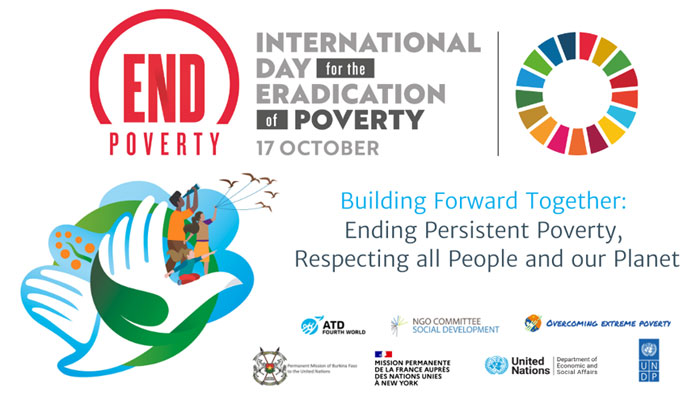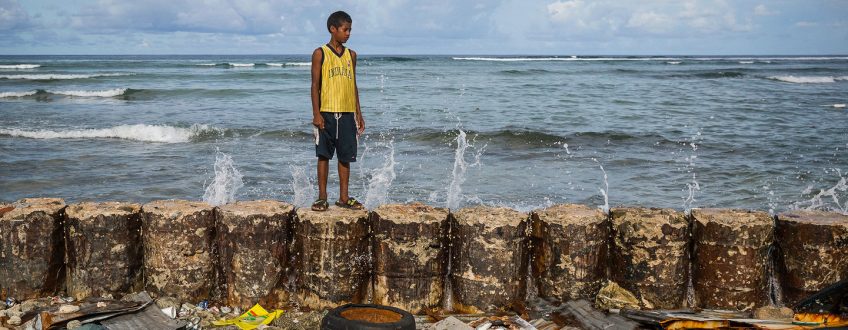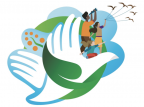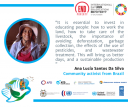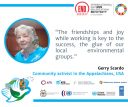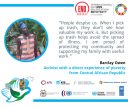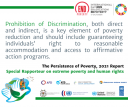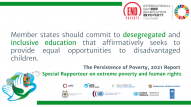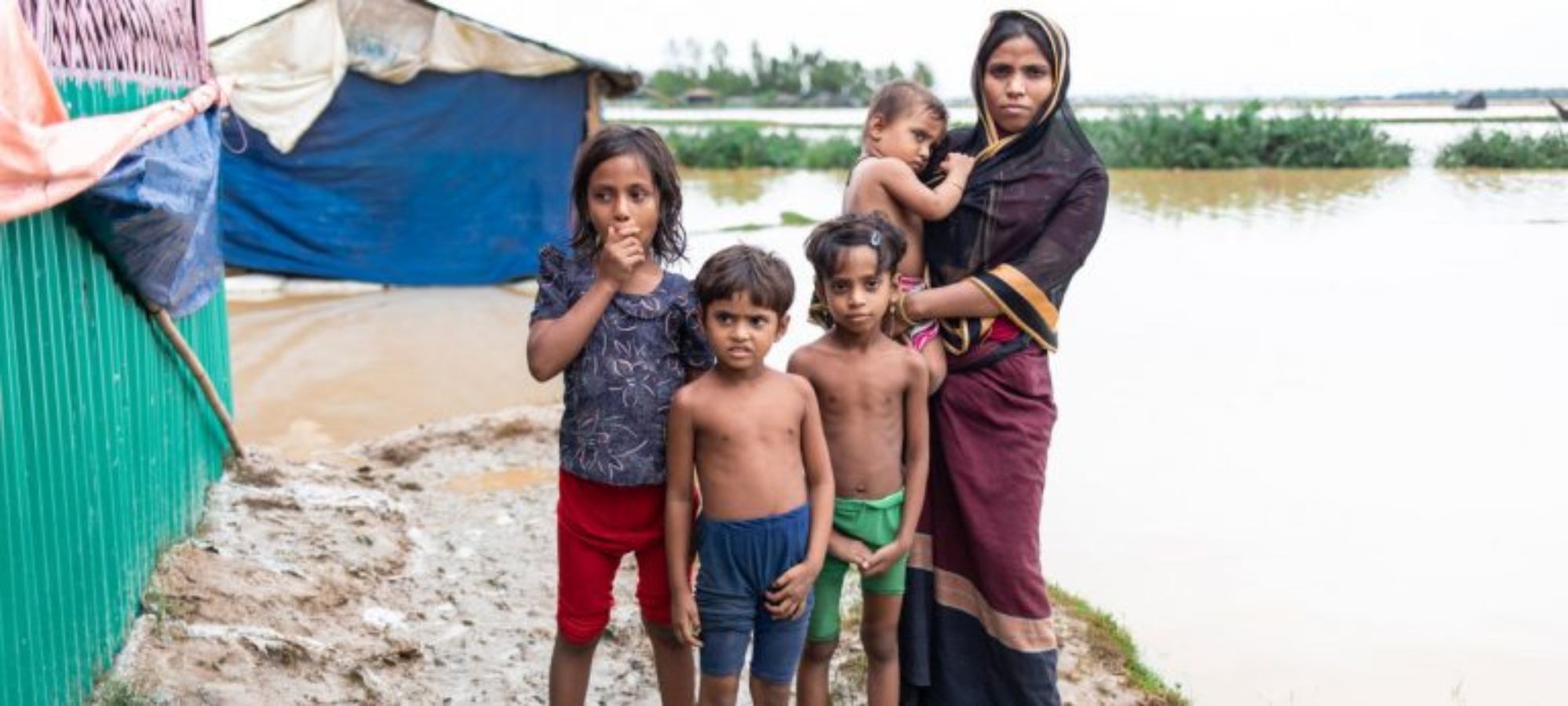
The theme this year is: “Building Forward Together: Ending Persistent Poverty, Respecting all People and our Planet”.
The COVID-19 pandemic that gripped the world during the past year has resulted in over 3.7 million deaths and is reversing decades of progress in the fight against poverty and extreme poverty. According to the World Bank report on “Projected poverty impacts of COVID-19, ”between 71 to 100 million people are being pushed into poverty as a result of the crisis, with the majority of the new extreme poor being found in South Asian and Sub-Saharan countries where poverty rates are already high”. In 2021, this number is expected to rise to between 143 and 163 million.
These ‘new poor’ will join the ranks of the 1.3 billion people already living in multidimensional and persistent poverty who saw their pre-existing deprivations aggravated during the global pandemic. As a matter of fact, the impact of COVID-19 has been the hardest on the people who – for generations – have lacked equal access to public goods and services, quality healthcare systems and strong social protection, making it harder to cope with any shocks. In addition, the measures imposed to limit the spread of the pandemic often further pushed them into poverty – the informal economy which enables many people in poverty to survive was virtually shut down in many countries.
As we embark on the post-COVID recovery and getting back on track with the Sustainable Development Goals, many are talking of “building back better,” but the message from the worldwide consultation with the Permanent Forum on Extreme Poverty, a global network of people and organisations working to overcome poverty, conducted by the International Committee for October 17 made it clear that people living in extreme poverty do not want a return to the past nor to build back to what it was before. They do not want a return to the endemic structural disadvantages and inequalities. Instead, people living in poverty propose to build forward.
Building forward means transforming our relationship with nature, dismantling structures of discrimination that disadvantage people in poverty and building on the moral and legal framework of human rights that places human dignity at the heart of policy and action. Building forward means not only that no one is left behind but that people living in poverty are actively encouraged and supported to be in the front, engaging in informed and meaningful participation in decision making processes that directly affect their lives. In building forward, we need to let ourselves be enriched by the wealth of wisdom, energy and resourcefulness that people living in poverty can contribute to our communities, our societies and ultimately to our planet.
Learn more about the International Day for the Eradication of Poverty 2021.
International Day for the Eradication of Poverty 2021
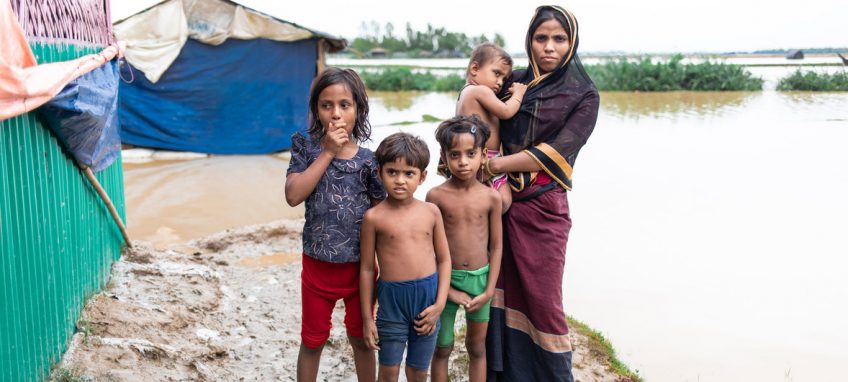
Theme: “Building Forward Together: Ending Persistent Poverty, Respecting all People and our Planet”.
The COVID-19 pandemic that gripped the world during the past year has resulted in over 3.7 million deaths and is reversing decades of progress in the fight against poverty and extreme poverty. According to the World Bank report on “Projected poverty impacts of COVID-19, ”between 71 to 100 million people are being pushed into poverty as a result of the crisis, with the majority of the new extreme poor being found in South Asian and Sub-Saharan countries where poverty rates are already high”. In 2021, this number is expected to rise to between 143 and 163 million.
These ‘new poor’ will join the ranks of the 1.3 billion people already living in multidimensional and persistent poverty who saw their pre-existing deprivations aggravated during the global pandemic. As a matter of fact, the impact of COVID-19 has been the hardest on the people who – for generations – have lacked equal access to public goods and services, quality healthcare systems and strong social protection, making it harder to cope with any shocks. In addition, the measures imposed to limit the spread of the pandemic often further pushed them into poverty – the informal economy which enables many people in poverty to survive was virtually shut down in many countries.
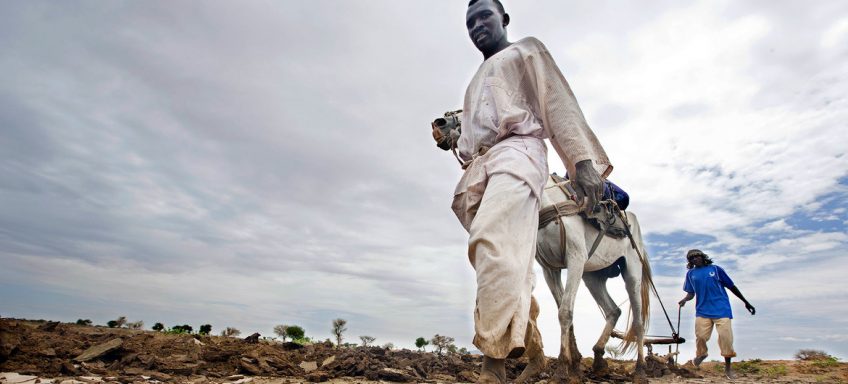
As we embark on the post-COVID recovery and getting back on track with the Sustainable Development Goals, many are talking of “building back better,” but the message from the worldwide consultation with the Permanent Forum on Extreme Poverty, a global network of people and organisations working to overcome poverty, conducted by the International Committee for October 17 made it clear that people living in extreme poverty do not want a return to the past nor to build back to what it was before. They do not want a return to the endemic structural disadvantages and inequalities. Instead, people living in poverty propose to build forward.
Building forward means transforming our relationship with nature, dismantling structures of discrimination that disadvantage people in poverty and building on the moral and legal framework of human rights that places human dignity at the heart of policy and action. Building forward means not only that no one is left behind but that people living in poverty are actively encouraged and supported to be in the front, engaging in informed and meaningful participation in decision making processes that directly affect their lives. In building forward, we need to let ourselves be enriched by the wealth of wisdom, energy and resourcefulness that people living in poverty can contribute to our communities, our societies and ultimately to our planet.
Concept Note (PDF)
Flyer English | Français | Español

UN Secretary‑General António Guterres’ video message for the International Day for the Eradication of Poverty 2021:
English | Français | Español | Русский | عربي | 汉语
Commemoration Event
This year’s theme for October 17 – International Day for the Eradication of Poverty 2021 was Building Forward Together: Ending Persistent Poverty, Respecting all People and our Planet
This year the UN virtual event took place on October 15, 2021 from 10:00am to 11:30am Eastern Time (US and Canada).
This year’s event featured:
- Messages from activists living in poverty facing the impact of Covid-19, climate change or environmental degradation.
- Message from the UN system and statements by
Ambassadors. - Multi-stakeholder Dialogues on eradicating poverty
through social and environmental justice.
Join the #EndPoverty global campaign
Everyone can join the campaign on social media by using hashtag #EndPoverty and promoting the call to action to connect with people from around the world who have joined the fight to overcome poverty.
In addition to the commemorative event to be held in New York on 17 October, commemorations of the international day are being organized worldwide. The online community is asked to use #EndPoverty to share messages about the International Day for the Eradication of Poverty via social media.
Social Media Guide
Main hashtag: #EndPoverty
Other hashtags:
#BreakTheCycle #BuildingForwardTogether #EndPovertyWeek
#StopPoverty #IDEP2021
Images to share:
General for the day:
Statements by people with a lived experience of poverty:
Policy recommendations:
Tweets:
Another year of virtual International Day for the Eradication of Poverty! Join us from anywhere in the world! RSVP here: bit.ly/UNIDEP2021 #BreakTheCycle.
Inclusive education is key to breaking the cycle of poverty, now is the time to start #BuildingForwardTogether! #IDEP2021 bit.ly/UNIDEP2021.
We want to #BreakTheCycle of intergenerational poverty, that’s why we call for early childcare support, a young adult basic income, prohibition of discrimination and inclusive education.
bit.ly/UNIDEP2021
 Welcome to the United Nations
Welcome to the United Nations
